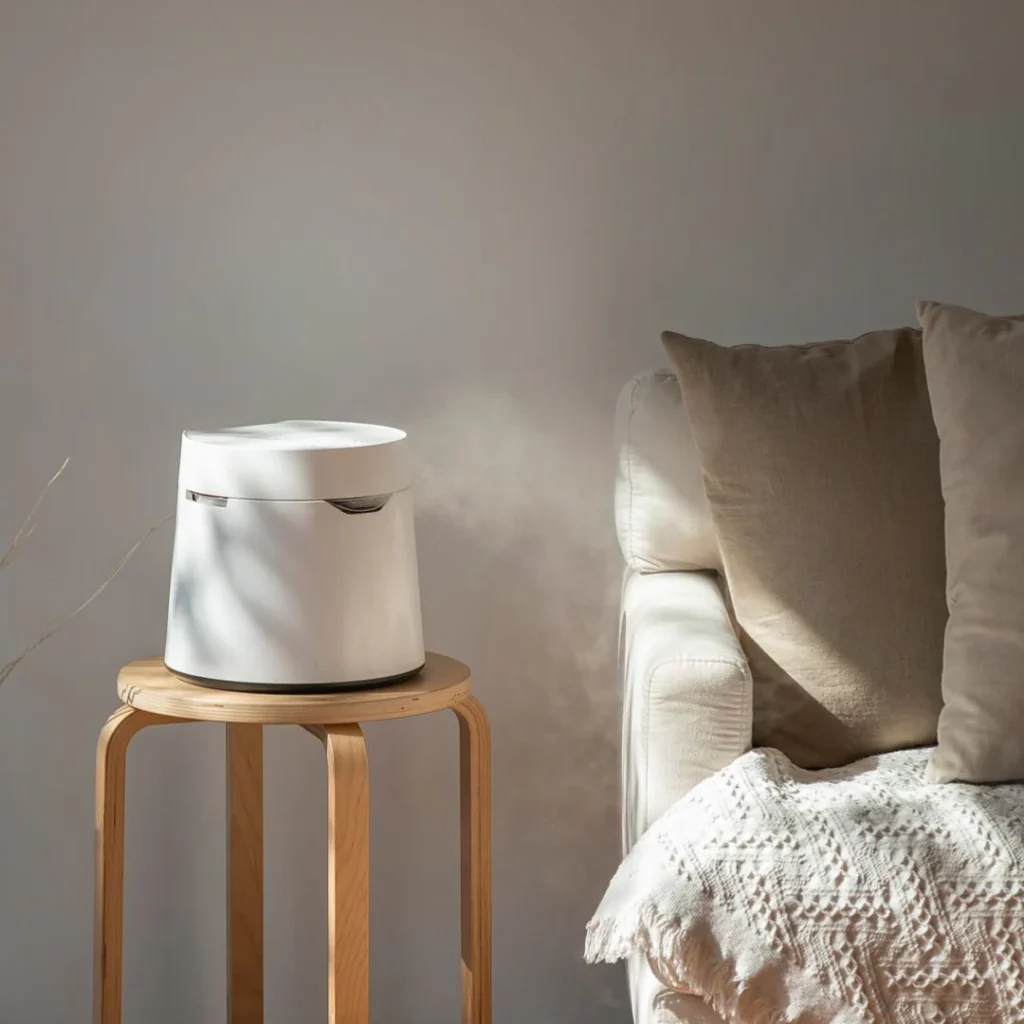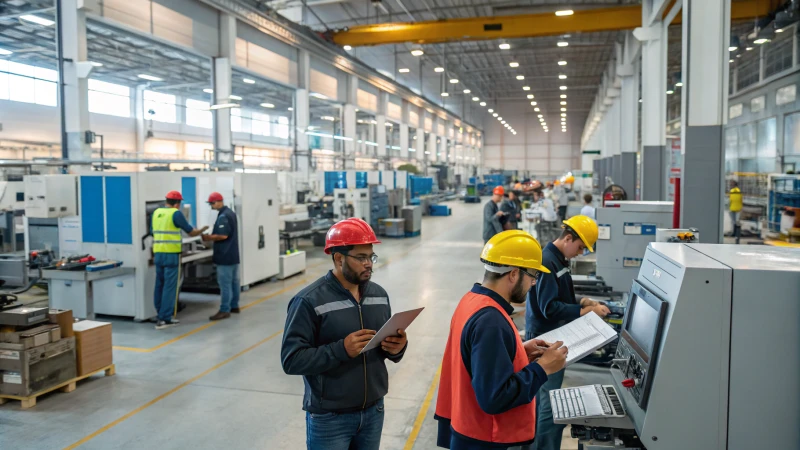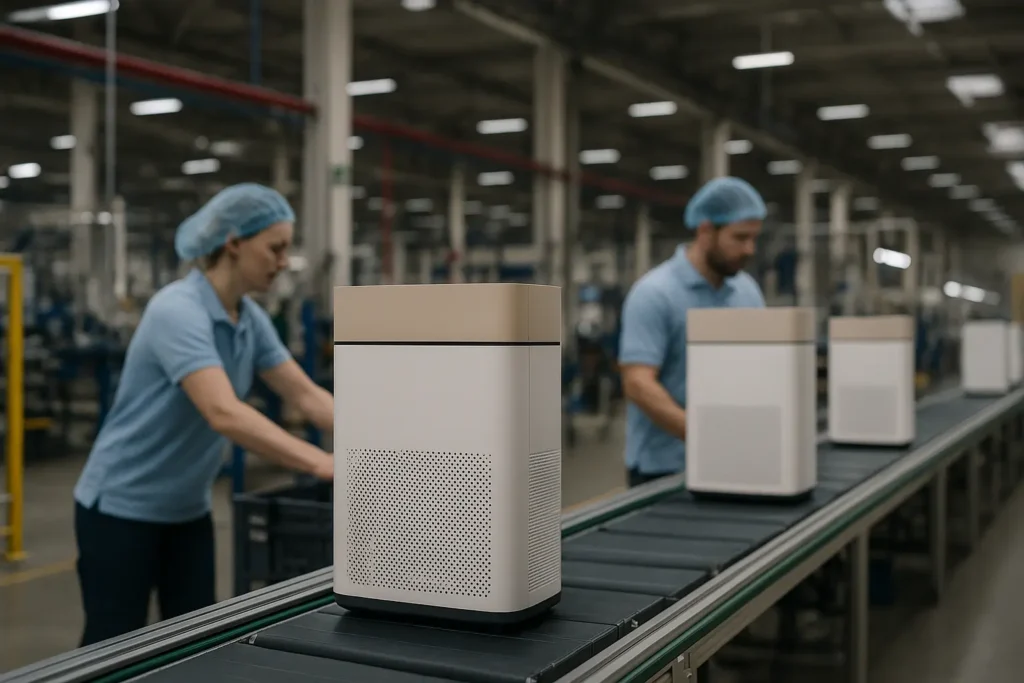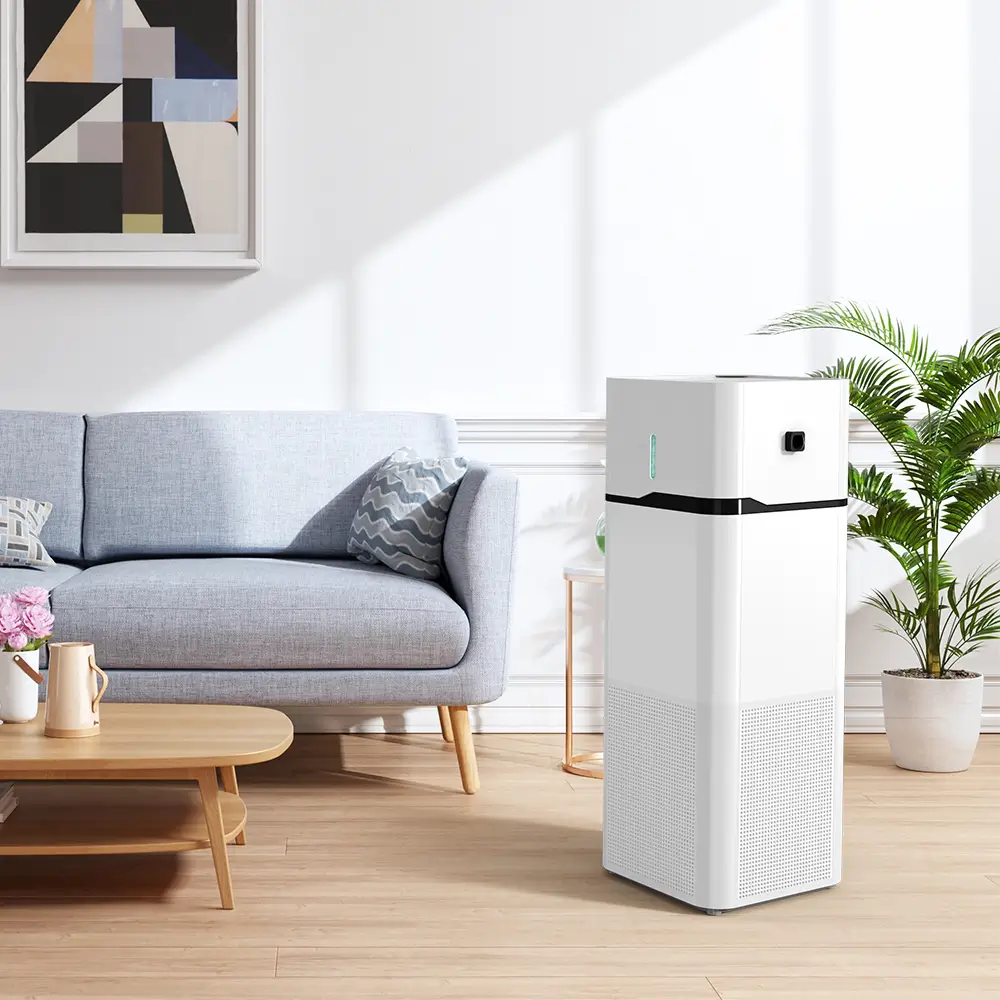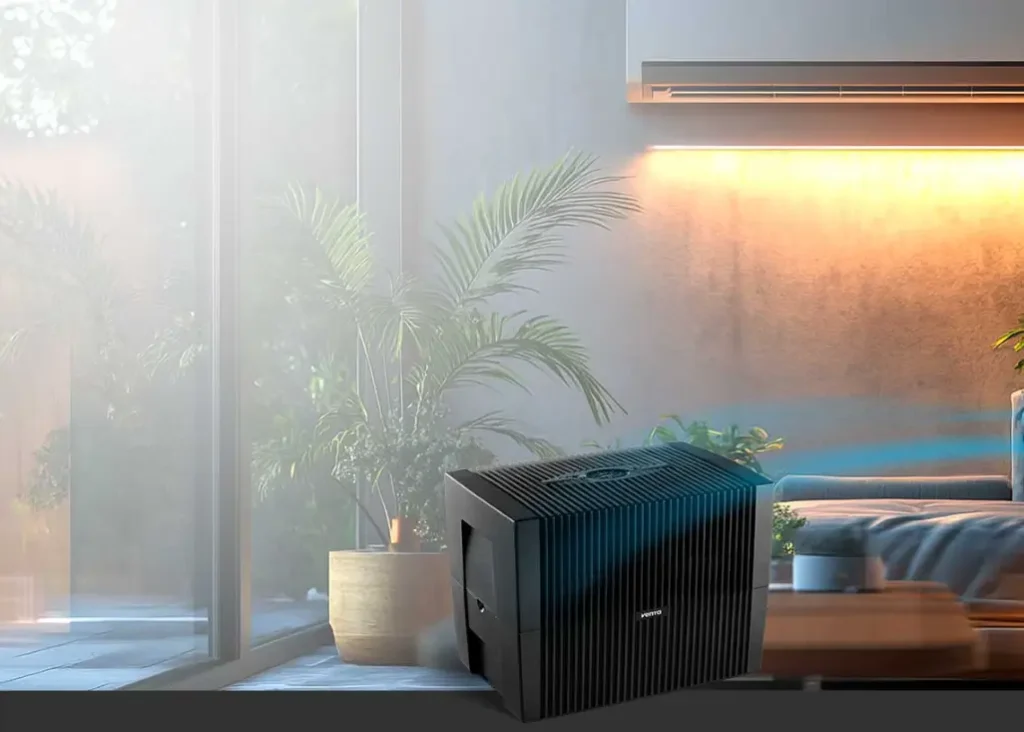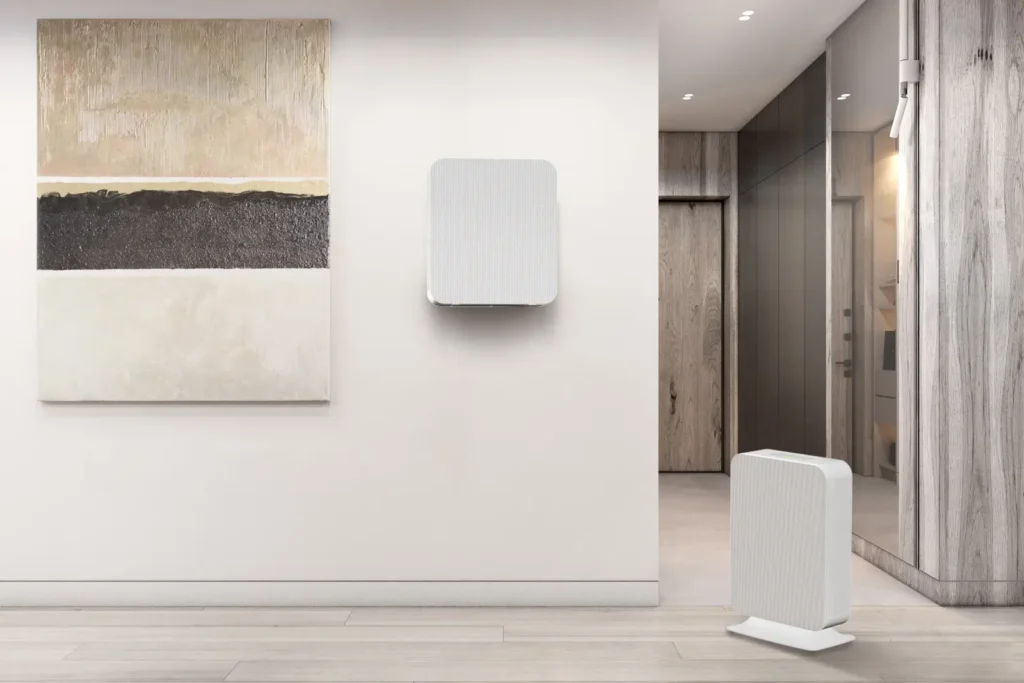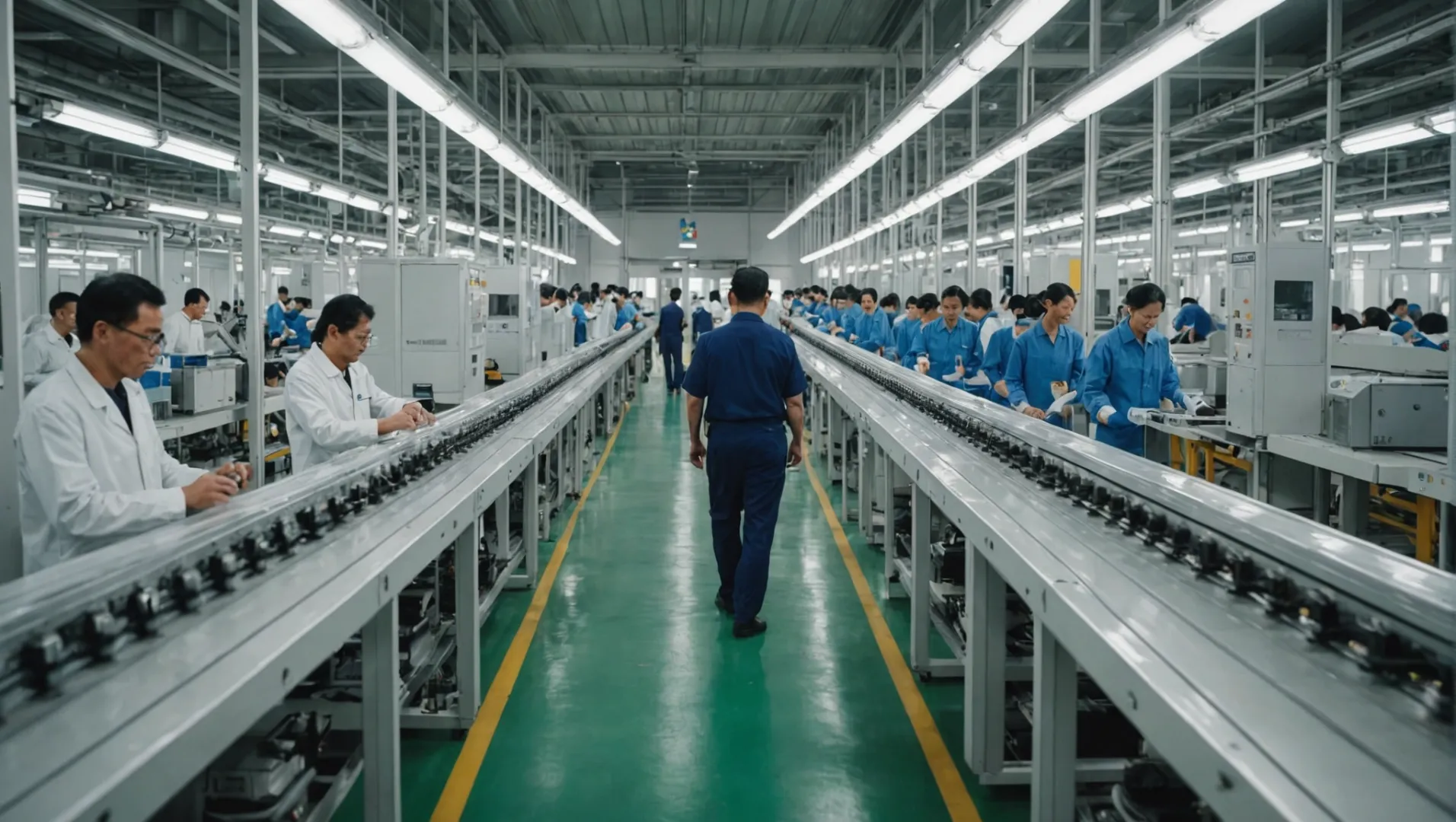
Dans un monde où l'air pur est considéré comme un luxe, je me suis souvent demandé si le pays d'origine de mon purificateur d'air avait vraiment de l'importance.
La Chine domine actuellement la production de purificateurs d'air en raison de sa solide chaîne d'approvisionnement, de son expertise en matière de fabrication et de sa rentabilité. Cependant, la Malaisie est en train de devenir un acteur important avec des capacités croissantes et des marques notables comme Dyson qui contribuent au marché.
Au fur et à mesure que j'approfondis ce sujet, il devient évident que si la Chine détient la couronne, la Malaisie n'est pas loin derrière. Voyons comment ces deux pays se situent l'un par rapport à l'autre !
La Chine domine la production de purificateurs d'air par rapport à la Malaisie.Vrai
L'infrastructure bien établie et la rentabilité de la Chine en font le leader.
Qu'est-ce qui fait de la Chine un acteur dominant dans la production de purificateurs d'air ?
L'avance de la Chine dans la production de purificateurs d'air s'explique par sa vaste chaîne d'approvisionnement, ses prouesses en matière de fabrication et sa rentabilité. Mais qu'est-ce qui contribue exactement à cette domination ?
La Chine domine la production de purificateurs d'air en raison de ses vastes réseaux de chaînes d'approvisionnement, de son expertise historique et de ses coûts de fabrication compétitifs.
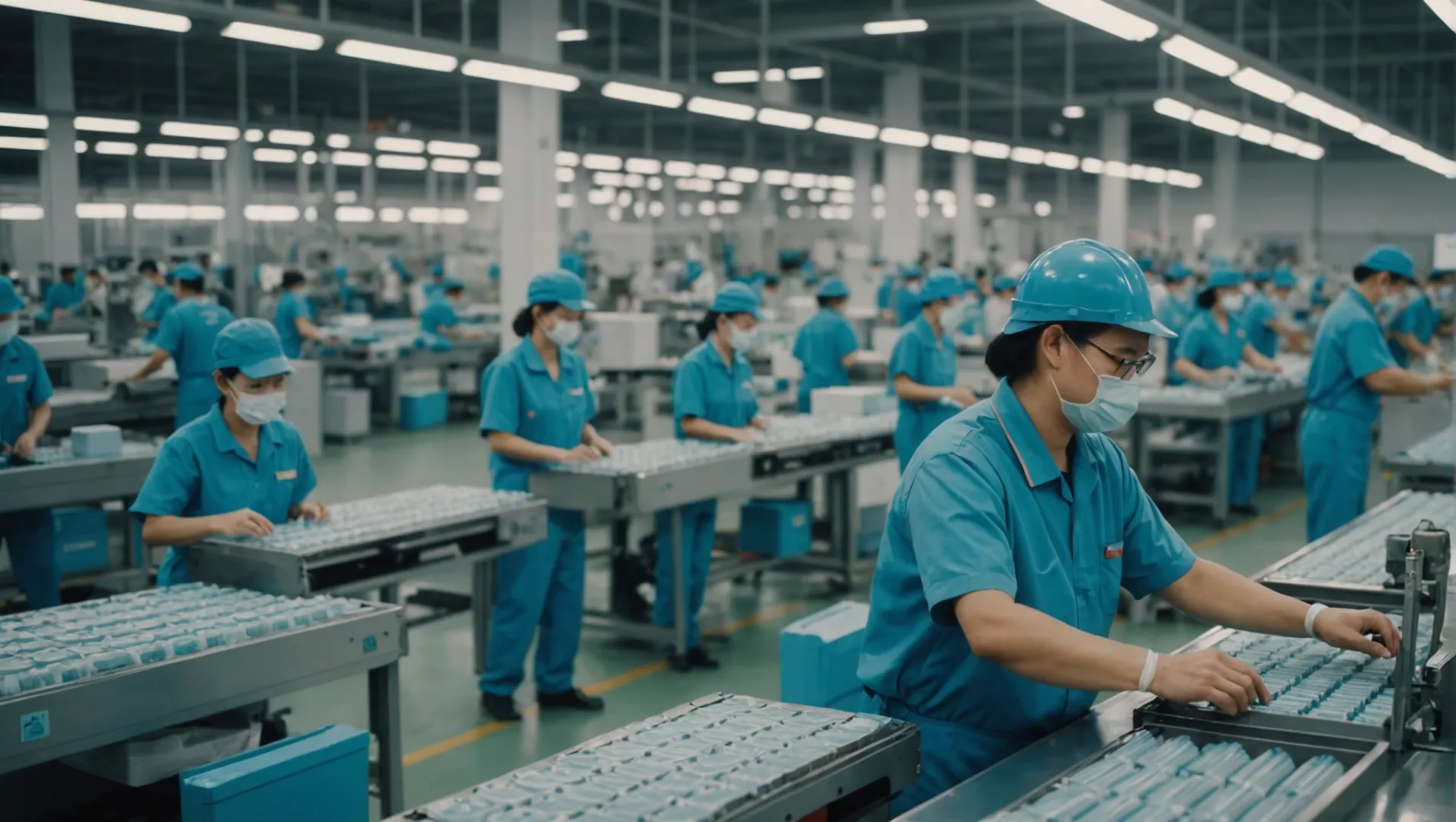
La puissance des chaînes d'approvisionnement
Au fil des ans, la Chine a méticuleusement mis en place un vaste réseau de fournisseurs et de fabricants, créant ainsi un réseau très efficace. système de chaîne d'approvisionnement1 qui soutient la production de purificateurs d'air. Cette infrastructure robuste garantit que tous les composants nécessaires, des pièces en plastique aux modules électroniques, sont facilement disponibles, ce qui réduit les délais et les coûts.
Expertise en matière de fabrication
Forte de plusieurs décennies d'expérience dans la fabrication de produits électroniques et de biens de consommation, la Chine offre une expertise inégalée dans la production de purificateurs d'air de haute qualité. Cette expertise ne se limite pas à un savoir-faire technique, mais s'appuie également sur la capacité d'innover et de s'adapter rapidement aux demandes du marché.
Rapport coût-efficacité
L'un des facteurs essentiels qui font de la Chine un acteur dominant est sa rentabilité. La fabrication en Chine reste rentable en raison des coûts de main-d'œuvre inférieurs et des économies d'échelle. Même en cas d'augmentation potentielle des droits de douane, comme mentionné dans les discussions sur la délocalisation de la production vers des pays comme la Malaisie, l'avantage en termes de coûts de la Chine l'emporte souvent sur ces dépenses supplémentaires.
Innovations et progrès technologiques
La Chine ne se limite pas à la production de masse ; elle est également à la pointe de l'innovation. De nombreuses entreprises chinoises investissent massivement dans la recherche et le développement afin d'améliorer les technologies de purification de l'air et de les rendre plus efficaces et plus abordables pour les consommateurs du monde entier. Ce cycle d'innovation continue permet à la Chine de rester un leader en termes de quantité et de qualité.
L'influence du marché mondial
La position dominante de la Chine dans la production de purificateurs d'air lui confère également une influence significative sur les tendances mondiales en matière de prix et de technologie. En tant que premier fabricant, elle peut fixer des prix compétitifs que les autres pays peinent à égaler, tout en étant à l'origine d'avancées technologiques qui façonnent l'avenir du secteur.
En conclusion, si la Malaisie apparaît comme un concurrent redoutable, la combinaison de l'efficacité de la chaîne d'approvisionnement, de l'expertise en matière de fabrication, des avantages en termes de coûts et de l'esprit d'innovation de la Chine continue de consolider sa position de leader sur le marché des purificateurs d'air.
Les chaînes d'approvisionnement chinoises réduisent les coûts de production des purificateurs d'air.Vrai
Les chaînes d'approvisionnement efficaces de la Chine garantissent la disponibilité des composants et réduisent les coûts.
La Malaisie a dépassé la Chine en matière d'innovation dans le domaine des purificateurs d'air.Faux
La Chine est en tête de l'innovation en matière de purificateurs d'air grâce à d'importants investissements dans la recherche et le développement.
Comment la Malaisie émerge-t-elle sur le marché des purificateurs d'air ?
À mesure que le marché des purificateurs d'air évolue, la Malaisie se positionne comme un concurrent de premier plan aux côtés de géants établis comme la Chine.
La Malaisie émerge sur le marché des purificateurs d'air en renforçant ses capacités de production et en attirant des marques mondiales, malgré des difficultés telles que des coûts de production plus élevés qu'en Chine.
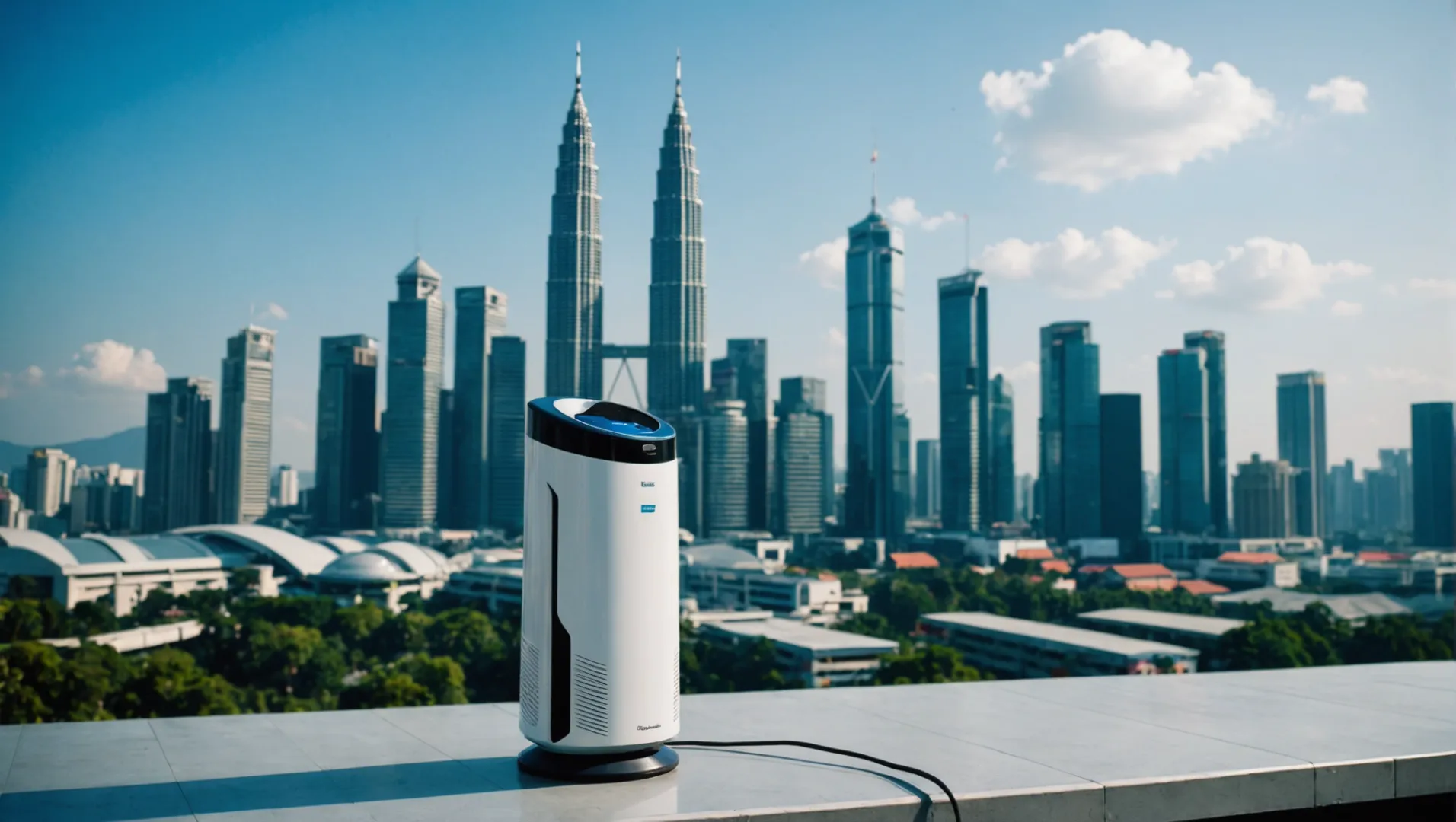
Position stratégique de la Malaisie sur le marché
L'essor de la Malaisie sur le marché des purificateurs d'air peut être attribué à sa situation stratégique et à sa base industrielle croissante. Ce pays d'Asie du Sud-Est offre un environnement propice aux fabricants qui cherchent à diversifier leurs sites de production. Des marques mondiales, telles que Dyson, sont déjà présentes en Malaisie, bénéficiant des capacités industrielles en plein essor du pays.
L'impact des politiques commerciales mondiales
Les changements dans les politiques commerciales mondiales, en particulier les droits de douane, influencent également la réorientation de la production vers la Malaisie. Les droits de douane potentiels augmentant les coûts des produits fabriqués en Chine, de nombreuses entreprises cherchent d'autres sites de production. La Malaisie constitue une option viable en raison de son environnement politique relativement stable et de l'amélioration de ses infrastructures de production.
Défis et opportunités
Si la Malaisie offre de nombreuses possibilités, elle est également confrontée à des défis. L'un des principaux obstacles est le coût de production plus élevé qu'en Chine. Cette augmentation, estimée à environ 10-15%, est due à des facteurs tels que l'efficacité de la main-d'œuvre et la nécessité d'importer des composants clés de Chine. Toutefois, les avantages tarifaires potentiels et les avantages stratégiques d'une chaîne d'approvisionnement diversifiée peuvent compenser ces coûts.
Le rôle des marques locales et de l'innovation
Les marques locales malaisiennes commencent à s'imposer dans le secteur des purificateurs d'air, grâce à l'innovation et à des prix compétitifs. La présence de ces marques renforce non seulement la position de la Malaisie sur le marché mondial, mais stimule également la croissance économique locale.
Comparaison des composants clés
| Facteur | Chine | Malaisie |
|---|---|---|
| Efficacité du travail | Haut | Modéré |
| Coût de production | Plus bas | Plus élevé de 10-15% |
| Dépendance de l'importation de composants | Faible | Haut |
En comprenant cette dynamique, les entreprises peuvent prendre des décisions éclairées sur le lieu de fabrication de leurs purificateurs d'air. L'évolution vers la Malaisie pourrait potentiellement remodeler le paysage de cette industrie essentielle et avoir un impact sur les consommateurs du monde entier. Pour en savoir plus impacts de la politique commerciale mondiale2 et Capacités de production de la Malaisie3Le site web de la Commission européenne est un site de lecture et d'analyse de la Commission européenne.
Les coûts de production de la Malaisie sont inférieurs à ceux de la Chine.Faux
Les coûts de production de la Malaisie sont supérieurs de 10-15% à ceux de la Chine.
Dyson s'implante en Malaisie.Vrai
Dyson est l'une des marques mondiales qui s'installent en Malaisie.
Quels sont les principaux facteurs qui influencent les changements de production ?
Les changements de production dans l'industrie des purificateurs d'air sont motivés par de multiples facteurs complexes, qui remodèlent le paysage manufacturier mondial.
Les facteurs clés qui influencent les changements de production sont la rentabilité, la robustesse de la chaîne d'approvisionnement, les changements géopolitiques et les avancées technologiques. Ces éléments déterminent où les entreprises choisissent de fabriquer leurs produits, ce qui a un impact significatif sur l'industrie des purificateurs d'air.
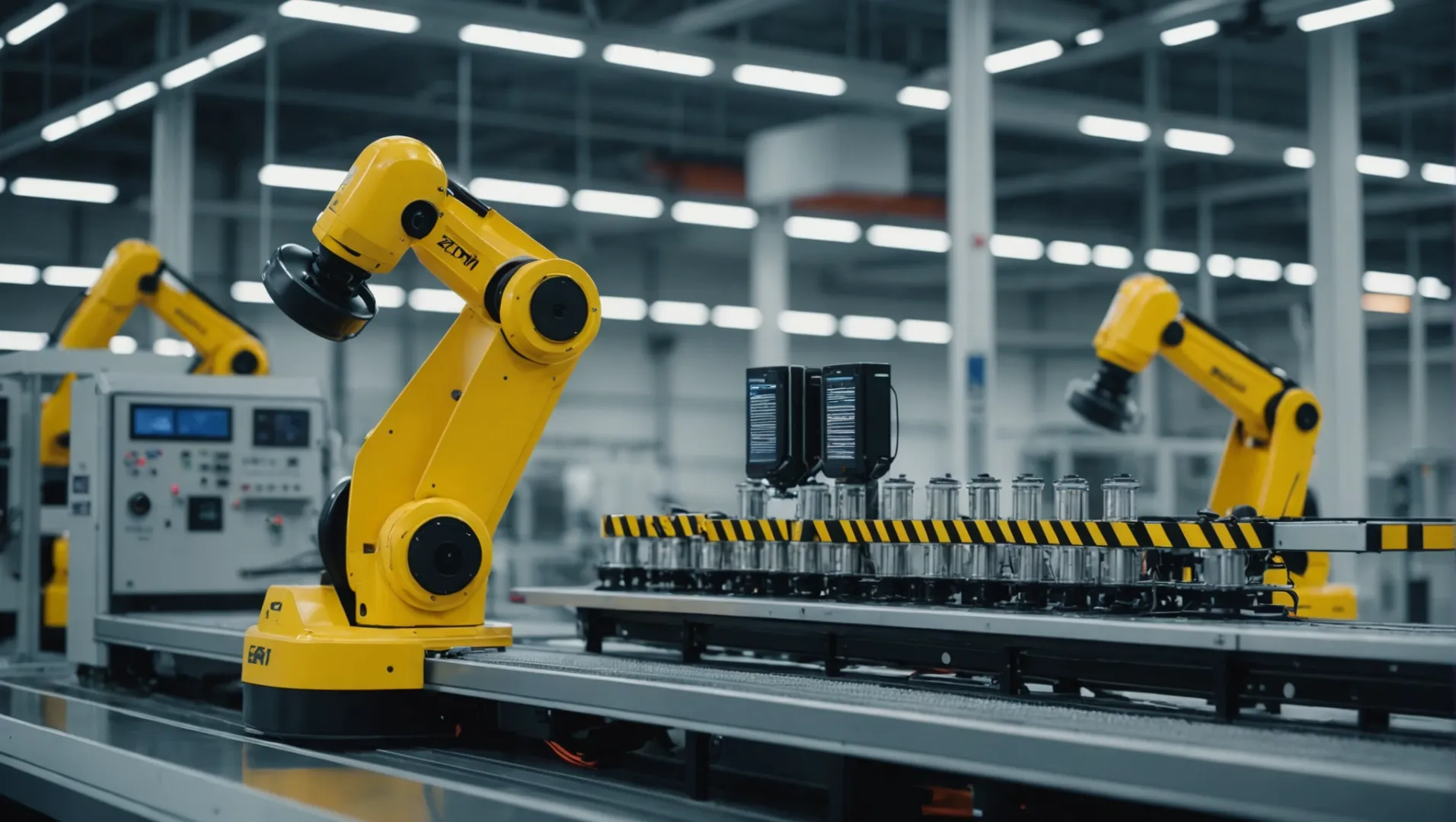
Rapport coût-efficacité
L'un des principaux facteurs influençant les changements de production est la rentabilité. Par exemple, l'avance actuelle de la Chine dans la production de purificateurs d'air est largement attribuée à sa capacité à maintenir des coûts inférieurs grâce à l'efficacité de la main-d'œuvre et à une chaîne d'approvisionnement bien intégrée. Toutefois, avec l'évolution des tarifs douaniers et d'autres facteurs économiques, les entreprises pourraient trouver avantageux de délocaliser vers des pays comme la Malaisie, où les coûts initiaux peuvent être plus élevés, mais où il est possible de réaliser des économies à long terme. Comprendre cette dynamique est essentiel pour les fabricants qui cherchent à optimiser leurs coûts opérationnels.
Robustesse de la chaîne d'approvisionnement
La domination historique de la Chine dans le secteur manufacturier s'explique par la solidité de son réseau de chaînes d'approvisionnement. Cette infrastructure soutient diverses industries, y compris la production de purificateurs d'air, en assurant un flux régulier de matériaux et de composants. Néanmoins, certains composants clés des purificateurs d'air sont importés de Chine, même par des fabricants malaisiens comme Dyson. À mesure que les chaînes d'approvisionnement mondiales sont perturbées, la nécessité d'une diversification devient évidente, ce qui fait des pays dotés de capacités de production croissantes, tels que la Malaisie, des alternatives attrayantes.
Changements géopolitiques
Le climat géopolitique influence fortement les décisions de fabrication. Par exemple, les changements dans les politiques commerciales des États-Unis sous différentes administrations peuvent entraîner des changements importants. L'éventualité d'une augmentation des droits de douane sur les produits chinois a incité certains fabricants à envisager une délocalisation vers d'autres pays asiatiques. La Malaisie apparaît comme une option viable en raison de sa situation stratégique et de sa base industrielle émergente.
Progrès technologiques
Les avancées technologiques jouent également un rôle dans les changements de production. Les capacités de production de la Malaisie se développant rapidement, l'intégration de technologies avancées pourrait encore renforcer son attrait. Les entreprises qui souhaitent rester à la pointe du progrès doivent évaluer les avantages de l'adoption de nouvelles technologies par rapport aux coûts et aux risques potentiels qu'elles impliquent.
Ces facteurs sont interconnectés et complexes, ce qui oblige les entreprises à rester informées et à s'adapter. La décision de réorienter la production ne repose pas sur un seul élément, mais sur une combinaison d'influences qui peuvent façonner le paysage futur de l'industrie. Pour en savoir plus sur la façon dont ces facteurs interagissent, vous pouvez consulter les sites suivants impacts géopolitiques sur l'industrie manufacturière4 ou les progrès des technologies de fabrication5.
La Chine est en tête de la production de purificateurs d'air en raison de son rapport coût-efficacité.Vrai
La Chine maintient des coûts inférieurs grâce à l'efficacité de la main-d'œuvre et à l'intégration de la chaîne d'approvisionnement.
L'industrie manufacturière malaisienne manque d'avancées technologiques.Faux
Les capacités de production de la Malaisie se développent grâce aux technologies de pointe.
Comment les coûts de production sont-ils comparés entre la Chine et la Malaisie ?
La compréhension des coûts de production en Chine et en Malaisie peut guider les décisions stratégiques des entreprises dans l'industrie des purificateurs d'air.
Les coûts de production en Chine sont généralement inférieurs en raison d'une chaîne d'approvisionnement bien établie et de l'efficacité de la fabrication. La Malaisie, bien que légèrement plus coûteuse, offre des possibilités d'économies grâce à la réduction des droits de douane et au développement des capacités locales.
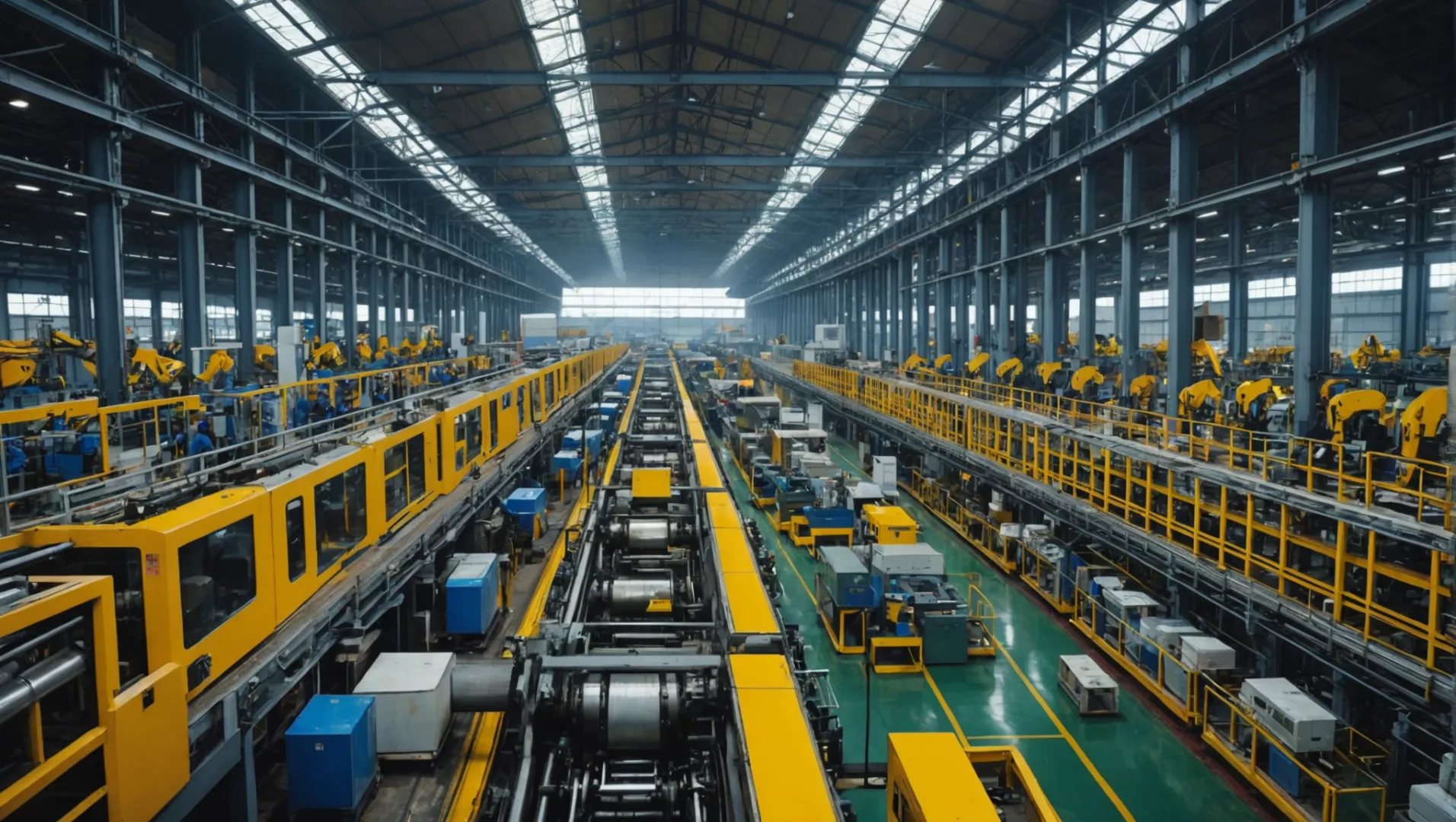
Comparaison des coûts de main-d'œuvre
L'un des principaux facteurs influençant les coûts de production est la main-d'œuvre. En Chine, les coûts de la main-d'œuvre ont augmenté régulièrement au fil des ans en raison de la croissance économique et de l'amélioration du niveau de vie. Toutefois, le pays bénéficie toujours d'une main-d'œuvre nombreuse et qualifiée qui favorise l'efficacité de la production.
En revanche, la Malaisie offre un avantage concurrentiel grâce à des coûts de main-d'œuvre généralement moins élevés. Le pays continuant à développer son secteur manufacturier, les entreprises peuvent profiter d'une main-d'œuvre plus abordable sans compromettre le niveau de compétences.
Évaluer l'efficacité de la chaîne d'approvisionnement
La chaîne d'approvisionnement bien établie de la Chine permet aux fabricants d'accéder facilement aux composants essentiels, aux matériaux et à l'expertise. Cela permet non seulement de réduire les coûts de production, mais aussi de garantir des délais d'exécution plus courts.
La Malaisie, tout en développant sa chaîne d'approvisionnement, dépend encore de l'importation de composants clés de Chine. Cette dépendance peut augmenter les coûts de production en raison des frais d'importation et des dépenses logistiques. Toutefois, à mesure que la Malaisie renforce ses capacités de production, ces coûts devraient diminuer.
Impact des tarifs douaniers et des politiques commerciales
Avec l'évolution des politiques commerciales mondiales, les droits de douane sont devenus un élément crucial pour les entreprises qui cherchent à optimiser leurs coûts de production. Par exemple, si les nouveaux droits de douane américains sur les produits chinois augmentent de manière significative, la délocalisation de la production en Malaisie pourrait atténuer ces dépenses.
Une augmentation potentielle des droits de douane de 60% sur les produits fabriqués en Chine pourrait inciter les fabricants de purificateurs d'air à se délocaliser en Malaisie, où ils peuvent bénéficier de droits de douane réduits à l'exportation vers des marchés importants tels que les États-Unis.
Tableau récapitulatif des facteurs de coûts de production
| Facteur | Chine | Malaisie |
|---|---|---|
| Coûts de main-d'œuvre | En hausse | Plus bas |
| Efficacité de la chaîne d'approvisionnement | Très efficace | Développement |
| Dépendance de l'importation de composants | Faible | Haut |
| Impact tarifaire | Potentiellement élevé avec les États-Unis | Baisse attendue des droits de douane |
L'infrastructure croissante et les politiques commerciales favorables de la Malaisie constituent une alternative attrayante pour les fabricants qui cherchent à équilibrer les coûts et l'accessibilité au marché. Toutefois, les entreprises doivent mettre ces avantages en balance avec les gains d'efficacité bien établis en Chine.
Pour en savoir plus sur la manière dont les politiques commerciales affectent l'industrie manufacturière mondiale, vous pouvez consulter les sites suivants impact sur le commerce mondial6. Cette ressource fournit un contexte plus large sur la façon dont les réglementations internationales peuvent façonner les stratégies de production.
Les coûts de production de la Chine sont inférieurs à ceux de la Malaisie.Vrai
La Chine bénéficie d'une chaîne d'approvisionnement bien établie et de l'efficacité de sa production.
Les coûts de main-d'œuvre de la Malaisie sont plus élevés que ceux de la Chine.Faux
La Malaisie offre des coûts de main-d'œuvre inférieurs à ceux de la Chine, ce qui favorise la compétitivité.
Conclusion
Si la Chine domine aujourd'hui, les progrès rapides de la Malaisie pourraient remodeler l'avenir de la production de purificateurs d'air.
-
Découvrez comment les avantages de la chaîne d'approvisionnement chinoise influent sur la production de purificateurs d'air : La domination de la Chine dans la production de purificateurs d'air est due à sa rentabilité et à la solidité de son infrastructure de chaîne d'approvisionnement. La Chine excelle dans la production de purificateurs d'air ... ↩
-
Découvrez comment les politiques commerciales internationales influencent les décisions de fabrication à l'échelle mondiale.. : La mondialisation de l'industrie manufacturière est en train de changer, car la politique commerciale, les nouveaux accords gouvernementaux et les réglementations rendent nécessaires des stratégies renouvelées. ↩
-
Le marché des purificateurs d'air de la Malaisie est en pleine expansion : Le marché des purificateurs d'air en Malaisie est évalué à 79,56 millions USD en 2023 et devrait connaître une croissance robuste au cours de la période de prévision avec un TCAC de 10,32%.... ↩
-
Découvrez comment les dynamiques géopolitiques influencent les sites de production à l'échelle mondiale.. : Les tensions géopolitiques pourraient menacer l'accès des fabricants de produits électroniques et d'énergie renouvelable aux minerais essentiels qui sont ... ↩
-
Découvrez les innovations qui façonnent les processus de fabrication modernes.. : 1. La numérisation et l'industrie 4.0. La numérisation a eu un impact profond sur le secteur de la fabrication, permettant aux entreprises d'optimiser les processus, d'améliorer ... ↩
-
Mieux comprendre l'influence des politiques commerciales sur la dynamique de l'industrie manufacturière .. : L'impact potentiel des restrictions commerciales sur les marges bénéficiaires incite la plupart des fabricants à rechercher des solutions pour réduire le coût de leurs intrants en s'approvisionnant ... ↩


